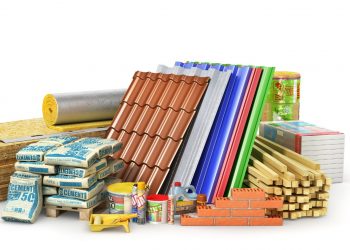RISMEDIA, August 29, 2009-First-time homebuyers aren’t the only ones to benefit from tax breaks. H&R Block urges homebuyers who are relocating for work or buying for other reasons to take advantage of incentives that can lower their tax bill. Plus, sellers should know how to report profits and losses to avoid a hefty tax bill.
“Now is a great time to buy or own a home,” said Amy McAnarney, executive director of The Tax Institute at H&R Block. “There are great tax incentives for buying and owning a home, whether you’re a first-time homebuyer or a repeat buyer. People selling their homes also need to know if they’ll need to report the profit to the IRS.”
Buying a home
Homebuyers can make the most of several tax breaks that help lower their tax bill based on the purchase of an existing or new home. For instance:
-First-time homebuyers: The Recovery Act provides a credit of up to $8,000 if a taxpayer buys a home between Jan. 1, 2009 and Nov. 30, 2009. The homebuyer also must not have owned a home in the previous three years and the home must be the primary residence.
-Points: The points paid on a mortgage are generally deductible as interest if taxpayers paid enough of a down payment or earnest money at closing to cover the points. Homebuyers can deduct the points even if the seller paid them.
-PMI premiums: Buyers who make a down payment of less than 20% of the home’s cost usually pay private mortgage insurance (PMI). But the PMI premiums generally can be included in your home mortgage interest deduction.
-Job relocation: Taxpayers who moved due to a job change can deduct the cost of moving. In order to take the deduction, they must move within one year of starting the new job, work full-time at least 39 weeks during the first 12 months at the new location, and the new job must be at least 50 miles further than the old residence was from the old job. Qualified moving expenses include your out-of-pocket cost of moving yourself, your family, and belongings to the new location.
Owning a home
If a taxpayer typically has claimed the standard deduction, owning a home will likely mean itemizing for extra deductions. Some tax breaks for homeowners include:
-Mortgage interest: For most taxpayers, the biggest tax break comes from deducting mortgage interest. Taxpayers can deduct interest on up to $1 million of the loan used to buy, build, or make substantial improvements to a main or second home. Interest on a home equity loan up to $100,000 secured by the main or second home is deductible too.
-Real estate taxes: Taxpayers can deduct real property taxes they pay on real estate to their municipalities, whether made directly or through their lending company.
-Home improvements and energy credits: The Recovery Act gives incentives to homeowners making improvements and energy-efficient upgrades to their homes. Taxpayers can get credits for 30% of the cost of qualifying doors, windows, HVAC, water heaters, roofing and insulation, up to a maximum credit of $1,500. Solar energy and wind energy systems are each 30% of cost with no maximum.
Selling a home
Sellers won’t have to pay taxes on a profit up to $250,000 for single filers and $500,000 for joint filers. Taxpayers must have lived in the home for at least two of the past five years to claim this exclusion. In some cases, taxpayers can claim a partial exclusion if they are selling due to a change in employment status, health reasons, divorce or other unforeseen circumstances.
Taxpayers whose homes were foreclosed may be able to exclude the mortgage debt that was forgiven in connection with the foreclosure. This provision applies to debt forgiven in calendar years 2007 through 2012, of up to $2 million is eligible for this exclusion ($1 million if married filing separately).
“Homeowners should maximize all the credits and deductions available. Knowing the tax incentives and how to take them is key for homeowners,” McAnarney said.
For more information, visit www.hrblock.com.










